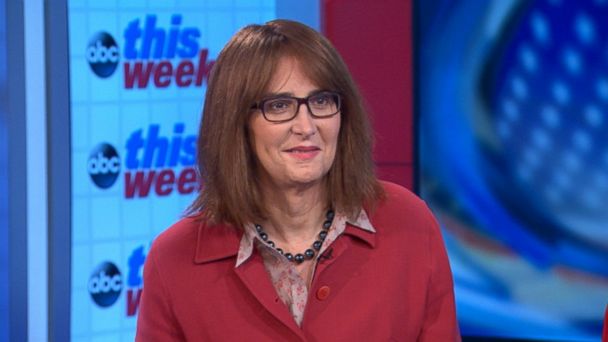Six Questions for Transgender Rights Advocate Mara Keisling

ABC News
This week we asked Mara Keisling, founding executive director of the National Center for Transgender Equality, about the biggest challenges facing the transgender community and "Orange is the New Black" actress Laverne Cox, who Keisling calls a "phenomenal figure in raising public understanding of transgender people."
1) So first - for those who do not know - can you explain what transgender means? How is gender identity different from sexual orientation?
MK: Being transgender is a deeply personal, deeply held understanding of your gender identity. It's someone whose gender today is different than the gender they were born as. Some transgender people have undergone some combination of social, legal, and medical transition to live their life as the gender they know they are. As for the relationship between being transgender and one's sexual orientation, simply put, sexual orientation describes the kind of person one is attracted to, whereas gender identity describes someone's understanding of themselves. Transgender people can be gay or straight or bisexual or asexual, just like anyone else.
2) What do we know about the number of transgender individuals in the United States?
MK: It's hard to tell exactly how many transgender people there are in the United States because many national population surveys like the Census or health studies are only beginning to explore how to count transgender people. My background is in public polling and the social scientist in me has sympathy for researchers who recognize how complicated it is to identify transgender people. That being said, Gary Gates at the Williams Institute at UCLA School of Law estimates that 0.3 percent of adults in the United States are transgender. That percentage is likely much higher when we include gender non-conforming people - that is, people whose gender presentation falls outside of what many view as "traditionally" male or female norms.
3) In your view, what is the biggest misperception about the transgender community?
MK: That we aren't who we say we are. Too often transgender people are accused of being something other than what they say they are. Too often, we are questioned about our "real" name or our "real" gender. The core of the mistreatment, harassment, and violence facing transgender people stems from this fundamental theme in the way the public doubts and denies us our true selves.
4) What do you think are the biggest challenges facing the transgender community?
MK: There are a lot of challenges out there, and there are a lot of people doing the work on the ground or here in Washington, D.C., who work tirelessly to address these challenges. But for me, I'd say it is the need to be accepted and respected for who we are. The lack of understanding of our humanity continues to cause us to face disrespect, discrimination, and violence and is actually killing us. And when trans people face that and other issues like racism, ableism, and xenophobia, the disrespect and violence can be so much worse.
5) How has Laverne Cox - who will be on "This Week" Sunday - contributed to the transgender awareness?
MK: Laverne has been a phenomenal figure in raising public understanding of transgender people. She has leveraged her platform to really catalyze public acceptance and she has done it with such graciousness, generosity, intelligence and her own story. She is part of this amazing moment we are having right now that is being led by a bunch of amazing trans women of color including Laverne, Andy Marra, Janet Mock, Geena Rocero, Fallon Fox, and some others. They are leading the kind of cultural shift that is making our work in Washington a lot easier and speeding up the pace of change.
SEE: Photos of "Orange is the New Black" Actress Laverne Cox
6) You've praised the president's actions on behalf of transgender Americans, but what else would you like to see him do?
MK: We still have a fairly full federal policy agenda that needs to be addressed. However, right now, since I know the White House is focused on immigration, I would especially flag the need for immigration reform that anticipates LGBT and queer immigrants. Our people often come to the U.S. because of dangerously anti-transgender climates back home, and they end up being victimized again by solitary confinement, an immoral bed quota, arbitrary asylum rules, and an absolutely broken detention system that simply cannot house transgender detainees safely.
Like "This Week" on Facebook here. You can also follow the show on Twitter here.
Go here to find out when "This Week" is on in your area.